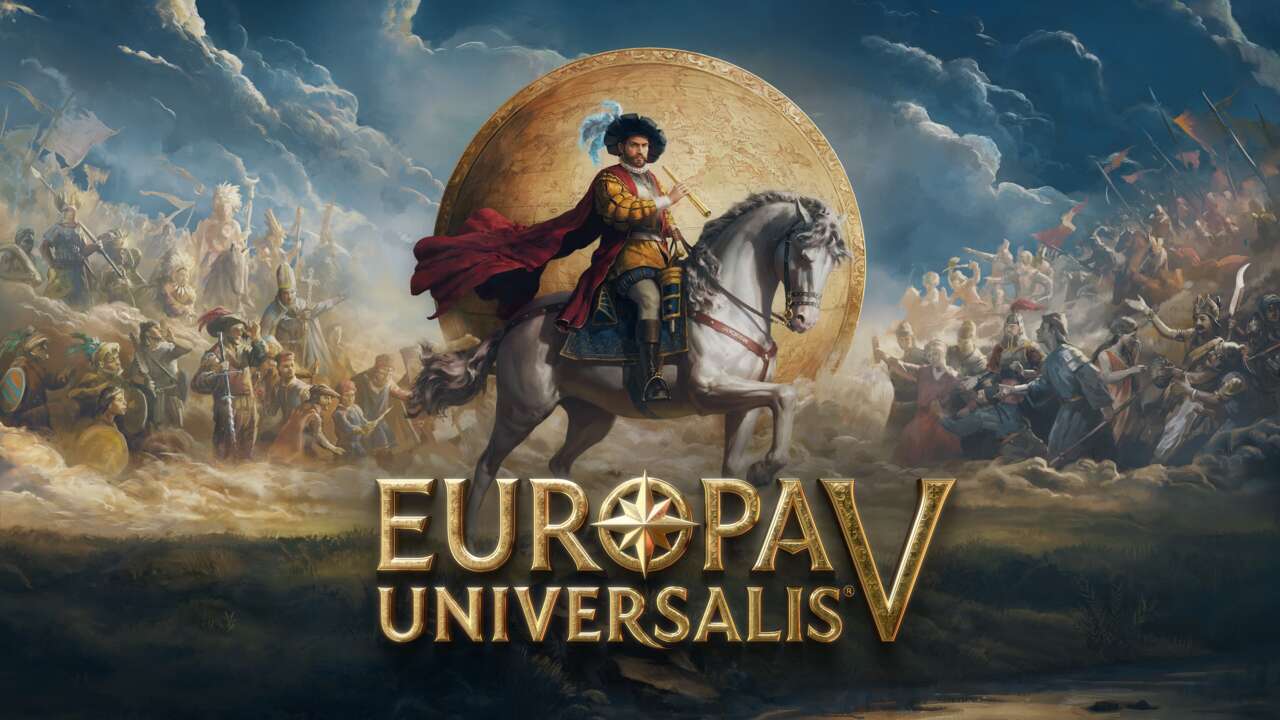Paradox Interactive has finally confirmed that its Tinto studio’s Project Caesar, which it had been teasing through a series of dev diary posts on its forum, is Europa Universalis V. As the first new entry in this series in nearly 12 years and one releasing in a very different landscape for strategy games, questions arise about what will, or should, change. Paradox’s answer is to simply rework and tweak a formula that has proven to work well, rather than changing everything to court new players.
I attended a digital preview event for Europa Universalis V and went hands-on with an early build of the real-time strategy game ahead of the announcement. I found that its biggest changes didn’t address approachability–which you might think would be the primary focus to attract newcomers to the franchise–but instead added strategic depth. Europa Universalis V feels distinct from what came before, but it doesn’t lose any of the series’ identity and focus on complexity. This might be the most hardcore grand strategy game in Paradox’s catalog.
All of the government, military, and economic strategy systems that the series is known for return in this latest entry, working in tandem to create a complex political climate that grows from the in-game starting point of 1337. Players take control of any nation they want from around the world and micromanage nearly every aspect of it. Grand strategy games are overwhelming in the amount of information and strategic options they present players, but become outstanding sandboxes for emergent storytelling once you know where to look and what to do–Europa Universalis V is no different.
Declaring war on a small neighboring country as Naples, only to get massive swaths of my territory annexed by France’s army because I didn’t notice the country I was attacking was their ally, was a frustrating moment. But it’s also one I won’t soon forget because it reminded me to pay closer attention to every little political detail Europa Universalis V offers and informed the rest of my play time as Naples. It was the kind of strategic mistake I won’t soon forget, as its fallout informed a non-negligible part of my country’s history.
The biggest hurdle Paradox will encounter with Europa Universalis V is encouraging players to upgrade to it. Every time Paradox releases a new game in one of its grand strategy series, it’s asking players to move away from games they’ve spent potentially thousands of hours and hundreds of dollars on.
Ultimately, Paradox believes that the appeal of an upgrade to Europa Universalis V comes from the new gameplay changes. When asked why players should upgrade, game director Johan Andersson said he believes Europa Universalis V has “more mechanics” and “more content” than its predecessor, making the upgrade worthwhile. That answer once again stresses that mechanical depth is this strategy game’s biggest draw.
Some of these gameplay evolutions are influenced by other Paradox grand strategy games, such as Victoria 3. For example, the population of Europa Universalis V’s provinces is now split into population units, each of which can have different cultural, religious, and economic demands and preferences. Keeping everyone as happy as possible is key to keeping a nation stable, but that’s easier said than done. There are also now more minutiae in the goods each province can produce, so players have to be more aware of whether they have a surplus of goods or if they have enough proper trade routes.
Europa Universalis V also goes back to the series’ roots in different ways. First, it removes mana as a mechanic, which restricted when and how players could perform actions. Secondly, it brings back the policy sliders from the first three games in the series, providing a clearer indication of where one’s nation stands in relation to different political values. All of these new systems and returning gameplay features give Europa Universalis V a clear identity of its own, if you know where to look.
And that identity is as a hardcore strategy game. Andersson outright called it “the most grand game we’ve ever made.” Those hardcore fans are the ones most likely to appreciate all of the tweaks Paradox has made to the core of the Europa Universalis formula. But if you’re someone who was hoping the next Europa Universalis would strip back complexity to make it more approachable, that’s certainly not the case.

The one addition that will make Europa Universalis V a little more approachable is its automation system. It allows players to automate tasks related to the conquerer, explorer, trader, and gardener play styles. By using this feature, players can focus on specific parts of the game, whether for educational or entertainment purposes.
This approach doesn’t sacrifice depth for the sake of approachability, as your best option will still be to manage everything yourself. Still, new players may want to automate certain tasks at first while getting used to all the changes and mechanics that Europa Universalis V introduces. As has historically been the case with Paradox Interactive’s grand strategy games, Europa Universalis V is overwhelming at first, but captivating once you get a handle on everything going on. In this way, it doesn’t sacrifice the series’ identity, but the culmination of all the Paradox grand strategy games that came before it ensures the experience doubles down on the strategic complexity. As a strategy game fan, I love it–I’ll take all the mechanical depth and complexity I can get.
Europa Universalis V does not balk at the challenge of offering a comprehensive grand strategy for its players, simply offering tools like automation so players can ease themselves into everything bit by bit. Although it may be tough for some to move on from Europa Universalis IV, a game with over 12 years of updates and DLC, those who make the jump will discover what’s shaping up to be the next great grand strategy sandbox from Paradox.









